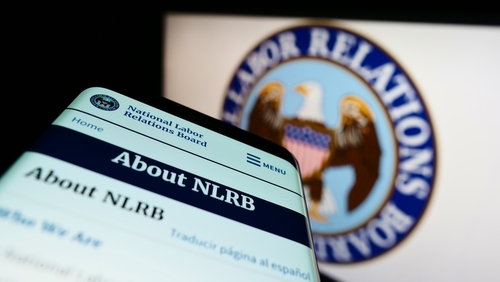Recipe for Change
Sometimes it’s tough to tell your clients that they can’t have what they want. Especially when your clients are hungry kids addicted to a steady diet of sugar, carbs and empty calories.
That was the situation facing chef Robert Surles when he took over the kitchen at Manhattan’s Calhoun School in 2002. Surles, better known as Chef Bobo, replaced an institutional catering company that had been serving up stereotypical school lunches–unhealthy meals that often went uneaten.
Chef Bobo says the opportunity to come to the school and help kids develop healthy eating habits was like a dream come true. But he also knew it would take more than enthusiasm to make his kitchen campaign a success. “I spent 25 years in the corporate world before I started cooking,” he says, “so I knew it would take a level of organization, an understanding of conflict and a lot of patience.”
First off, he tackled the vegetable situation. Or rather, the lack thereof. “I didn’t want to pressure the kids into taking something they didn’t want, so I helped them understand what’s good for them and encouraged them to take a small taste,” he says. From there, the strategy was simple: Wow them with flavor.
To do that, he took cauliflower and created a smooth, flavorful soup. He cut rutabaga into slices and baked it until it became sweet with the flavor of natural caramelization. And he enticed students to a stocked salad bar with rich housemade dressings.
“Even though they hated the previous food service, they were very cautious,” he says. Slowly, though, they started to bite. After all, Chef Bobo’s cooking is hard for anyone to resist: A graduate of the French Culinary Institute, he also works as a personal chef for Yankees star Derek Jeter and the Krewe of Orpheus, a New Orleans organization founded by Harry Connick Jr.
The Ketchup Compromise
Then Chef Bobo went a step too far. He took the ketchup off the tables. “Ketchup has more sugar than ice cream–I thought if I gave them ketchup, they wouldn’t taste my food,” he says. Students balked. One child even took advantage of Halloween to stage a small protest, dressing up as a ketchup bottle with a sign attached that said, “Chef Bobo, please take me back.”
He did, returning the condiment after a mere two-month moratorium. Now, though, he says the ketchup only comes out when a menu item calls for it.
Chef Bobo is perhaps most proud of his success with fish. “The first time I served it, the kids turned their noses up at it,” he says. So he went back to his strategy of emphasizing flavor. His menu is now 30 percent fish–up from about 10 percent–because of dishes like soy mustard-glazed salmon and crisp, oven-baked flounder fillets coated with bread crumbs and fresh thyme. The latter dish appears on the menu simply as “fish sticks,” a name Chef Bobo describes as pure marketing to entice that first taste.
Chef Bobo’s cafeteria coup hasn’t just benefited students, it’s pleased teachers as well. Head of School Steven J. Nelson says teachers report that students have more energy for afternoon classes, and the healthy meals have been a wonderful morale boost for everyone on staff.
With the days of mystery meat and unchecked ketchup use a mere memory, Calhoun students are now devouring miso soup, planning a rooftop herb garden and helping promote Chef Bobo’s Good Food Cookbook. “We had confidence the kids would prefer good food because it’s just better,” Nelson says. “I mean, herb-crusted cod with fresh corn chowder is always better than a Big Mac. If you don’t think so, you ain’t been eatin’ lately.”
Above the Trees looks at leaders and industries outside the law. It lets you draw analogies to how you run your business, how you deal with your clients and how you face your own challenges.



